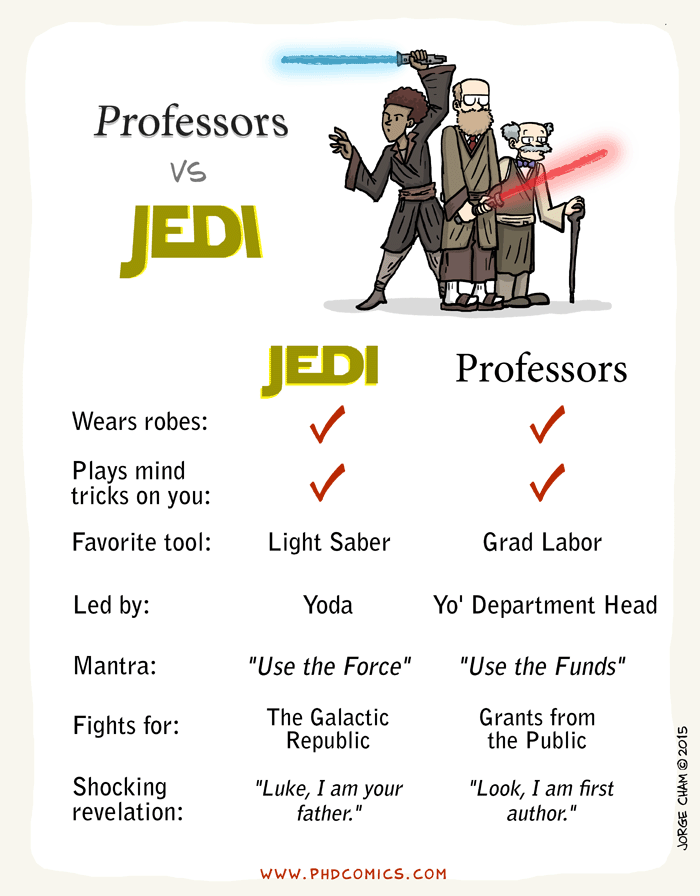Only the second applies to me (unless hoodie is counted as “robe”) 🙂
February 29, 2016
February 25, 2016
Repeating mistake
$ svn log . | less
————————————————————————
r2449 | liyiwei | 2016-02-24 17:28:39 -0800 (Wed, 24 Feb 2016) | 1 line
fix a type; shouldn’t type while moving my thoughts to the next thing =D
February 10, 2016
It might not be good to be a good student
It is usually not too hard for smart kids to perform well in schools; just excel in what you are told to do, such as taking courses.
This is a deterministic process with well-defined goals and tasks that reward smartness and hard working.
However, real world is chaotic and ambiguous. You have to figure out what to do, with shifting targets and ever-changing environments.
This is why school performance does not directly translate to real-life performance: the required mentality and skills are not the same.
This is also why being a good student might not be a good thing for you. You are so used to this deterministic input-output process that you might be very frustrated by the non-deterministic nature of the real world, when starting your first job or research project.
In contrast, not-so good students might adapt better to the real world, because they already have enough failure experiences and are not yet cast into conformity.
PS
I was lucky to be a student who was considered good in performance and bad in behavior.
🙂
February 2, 2016
Clinton versus Rubio
Barring major unexpected events, I could not see any other way for the 2016 US presidential election, and this will be a very interesting match-up.
🙂
February 1, 2016
The cat experiment
Once, when I was around 9 or 10, I was visiting my aunt’s place.
One of the cousins, X, and I were standing near the swimming pool. The family cat walked by. Cousin X and I got into the discussion about whether cats can swim. I have seen a few dogs and at least one horse swam, so I was pretty sure the answer is yes (cats seem more agile). Cousin X disagreed (he is older but not necessarily smarter), so we decided to have a bet.
Clearly, the only way to settle the bet is to experiment, so I grabbed the cat and threw it into the pool.
(That was before the age of YouTube and Google, BTW.)
What followed was amazing, and happened like within a few milliseconds. The cat sprang on the water surface like a trampoline, and immediate landed back near my feet. It was dripping, so it clearly fell into the water, but I had no idea how it managed to jump back. Meanwhile, our debate remained unsettled.
I am trying to come up with a very concrete way to tell a new PhD student how to decide whether someone is suitable for (scientific) research. So here is my try. Let me know if you have better ideas.
Do you like to ask questions that seem interesting at least to you (e.g. whether cats can swim)?
Do you enjoy finding the answers yourself through investigations and experiments (e.g. grab the cat and throw it into the pool, and observe what happens)?
Are you very comfortable with the consequences, regardless of the outcomes of the experiments (e.g. the cat neither swam nor sank and my aunt beat me up)?
Can you do this continuously as a career? Imagine it is Friday lunch time, and all the works you have done this week have turned out to be failures (e.g. no other ways you have tried can tell you whether cats can swim).
You have no idea what is going to happen this afternoon when you try your 101th experiment with that cat.
If you hesitate for any of these questions or you think I am crazy, you are probably not suitable for research. At least, you will not be happy or successful.
Talent and personality are important; you have to be sufficiently smart and tough for research. But passion is even more important; the only way to be truly happy and productive is to do what you really like.
